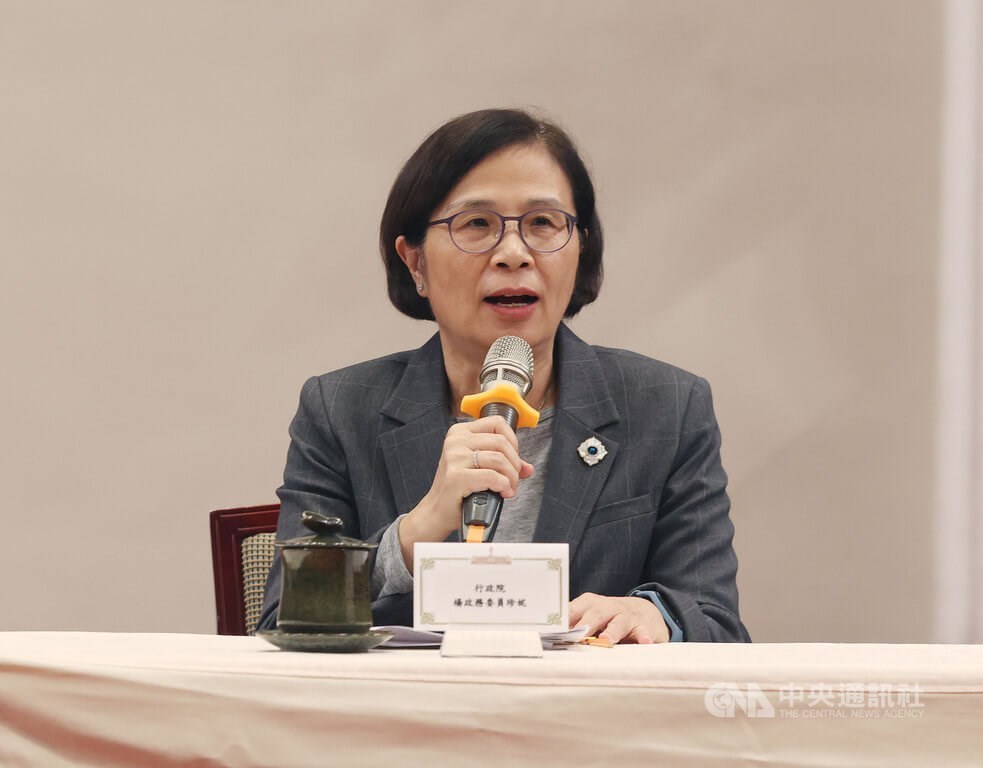Taipei, April 4 (CNA) Planned negotiations with the United States will focus on bringing down the sweeping duties pledged by U.S. President Donald Trump on Taiwanese goods, Taiwan’s top trade negotiator Yang Jen-ni (楊珍妮) said Friday.
At a news conference in Taipei, Yang declined to elaborate on what position the government planned to take when seeking to negotiate with the Trump administration, saying only: “We have some plans.”
The goal is to reduce the duties targeting most Taiwanese exports or limit their scope in order to safeguard the interests of Taiwanese industries and businesses and maintain their global competitiveness, said Yang, who concurrently serves as the Cabinet’s minister without portfolio.
Trump on Wednesday (Washington time) announced a 32 percent “reciprocal tariff” on most Taiwanese products entering the U.S., starting April 9, with only certain goods, such as copper, pharmaceuticals and semiconductors, exempt from the latest measure.
In addition, Taiwan’s auto parts manufacturers will be hit with an import tax of 25 percent, expected to take effect before May 3, following the Trump administration’s expansion of duties on foreign automobiles.
According to the Office of Trade Negotiations, which Yang heads, Taipei will emphasize its ongoing efforts to reduce the country’s trade surplus with the U.S., such as encouraging Taiwanese investment in the U.S. and expanding the purchase of American raw materials.
Yang noted that the government would “take into consideration” some of the barriers highlighted by the Trump administration and used to justify its “reciprocal tariffs” on other countries, such as levies, currency manipulation and government subsidies.
The trade official declined to comment on whether the government would consider leveraging Taiwan Semiconductor Manufacturing Co.’s (TSMC) reported chipmaking joint venture with Intel Corp. in the U.S. in its planned talks with Washington.
The Information has cited sources involved in the discussions as reporting that TSMC had reached a preliminary agreement to form a joint venture to operate Intel’s factories, although both companies declined to comment.
Yang, however, added that any overseas investment plans by Taiwanese enterprises would need to be screened by the Ministry of Economic Affairs (MOEA).
TSMC’s new US$100 billion investment to build three new foundries, an R&D center and two packaging facilities in Arizona, on top of its previous US$65 billion commitment, was approved by MOEA’s Department of Investment Review in late March.
The Cabinet did not respond directly to media questions about when such bilateral talks would take place or what officials would be involved, with Premier Cho Jung-tai (卓榮泰) saying the trade office and a working group formed in the wake of Trump’s second presidency would work hand in hand.
The working group, headed by Vice Premier Cheng Li-chiun (鄭麗君) and the Cabinet’s Secretary-General Kung Ming-hsin (龔明鑫), is tasked with handling trade and economic issues between Taiwan and the U.S., according to the Cabinet.
